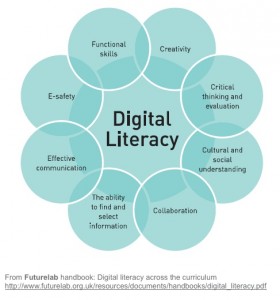The Guardian newspaper points to a so called ‘backlash’ against social networking, expressed in a number of recent academic studies and books. And to an extent, I agree. I suspect the novelty factor has worn off. That does not mean social networking is dead, far from it. But it does mean we are slowly evolving an ecosystem of social networking and I am not sure that the Facebook model, driven by the desire to monetarise a huge user base will survive in the long term.
Instead I see two trends. With applications like Facebook, or whatever succeeds it, friends will return to being friends. People we know, people we want to socialise with, be it family and friends we see regularly face to face or friends in distributed networks.
The second will be the growth of social networks based on shared interests and shared practice. Of course this is nothing new. The early days of the web spawned many wonderful bulletin boards with graphics being based on the imaginative use of different text and fonts. Ning led to the explosion of community sites whilst it remained free. But now we are seeing the evolution of free and open source software providing powerful tools for supporting interest and practice based communities.
Cloudworks, developed by the UK Open University has now released an installable version of their platform. Buddypress seems to have developed a vibrant open source community of developers.And I am greatly impressed by QSDA, the Open Source Question and Answer System. Quora is all the hype now. But like so many of these systems, it will be overrun not so much by machine driven spam, but by the lack of a shared community and purpose.
According to Ettiene Wenger, a community of practice defines itself along three dimensions:
- What it is about – its joint enterprise as understood and continually renegotiated by its members.
- How it functions – mutual engagement that bind members together into a social entity.
- What capability it has produced – the shared repertoire of communal resources (routines, sensibilities, artefacts, vocabulary, styles, etc.) that members have developed over time.
Open Source networking tools can allow us to support that shared repertoire of communal resources. I am working on the development of open and linked data for careers guidance and counselling. it is a fairly steep learning curve for me in terms of understanding data. And one of the bests sites I have found is Tony Hirst’s Get the Data site, only launched a week ago and based on the QSDA software, but already providing a wealth if freely contributed ideas and knowledge.
it is this sort of development that seems to me to be the future for social networking.
